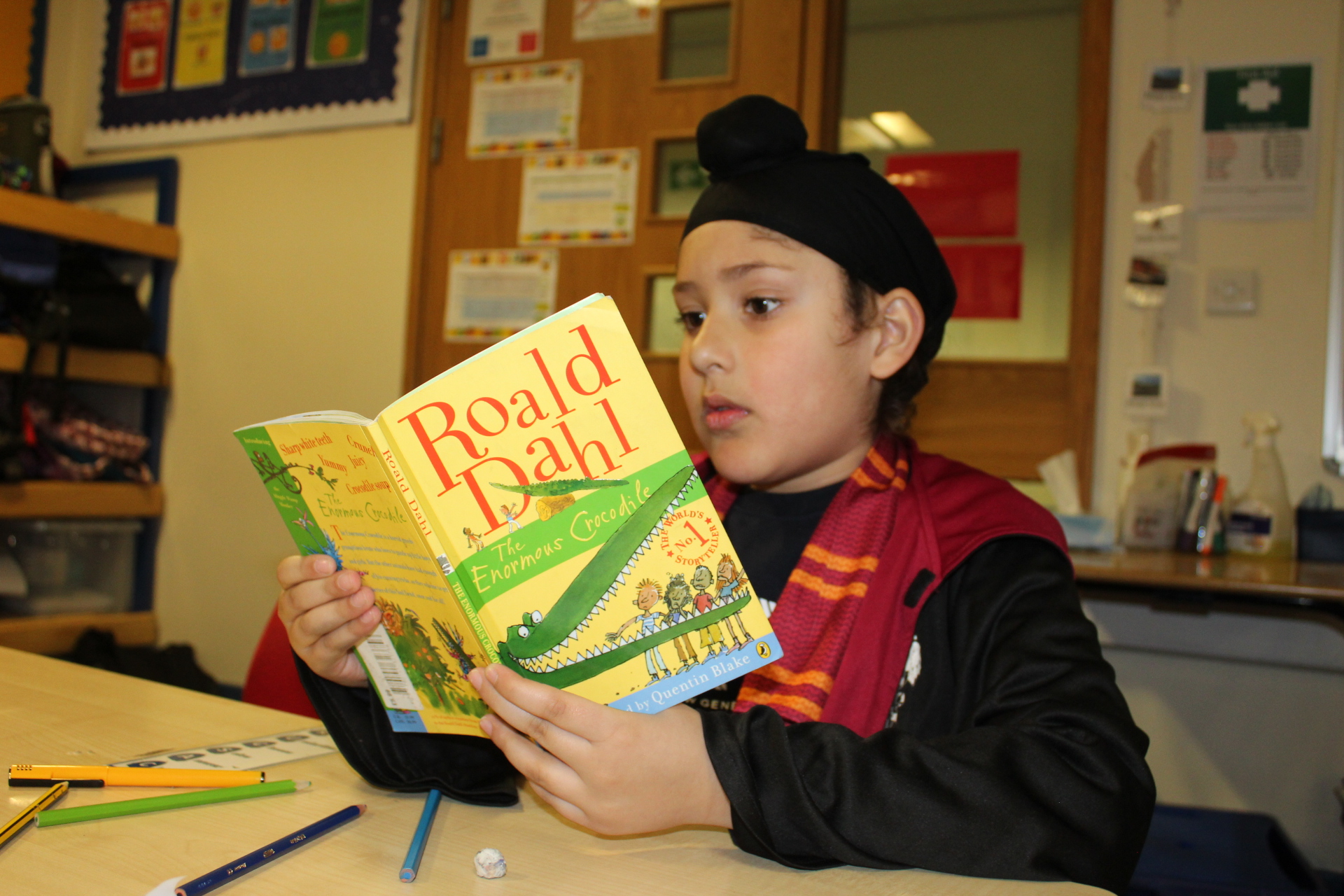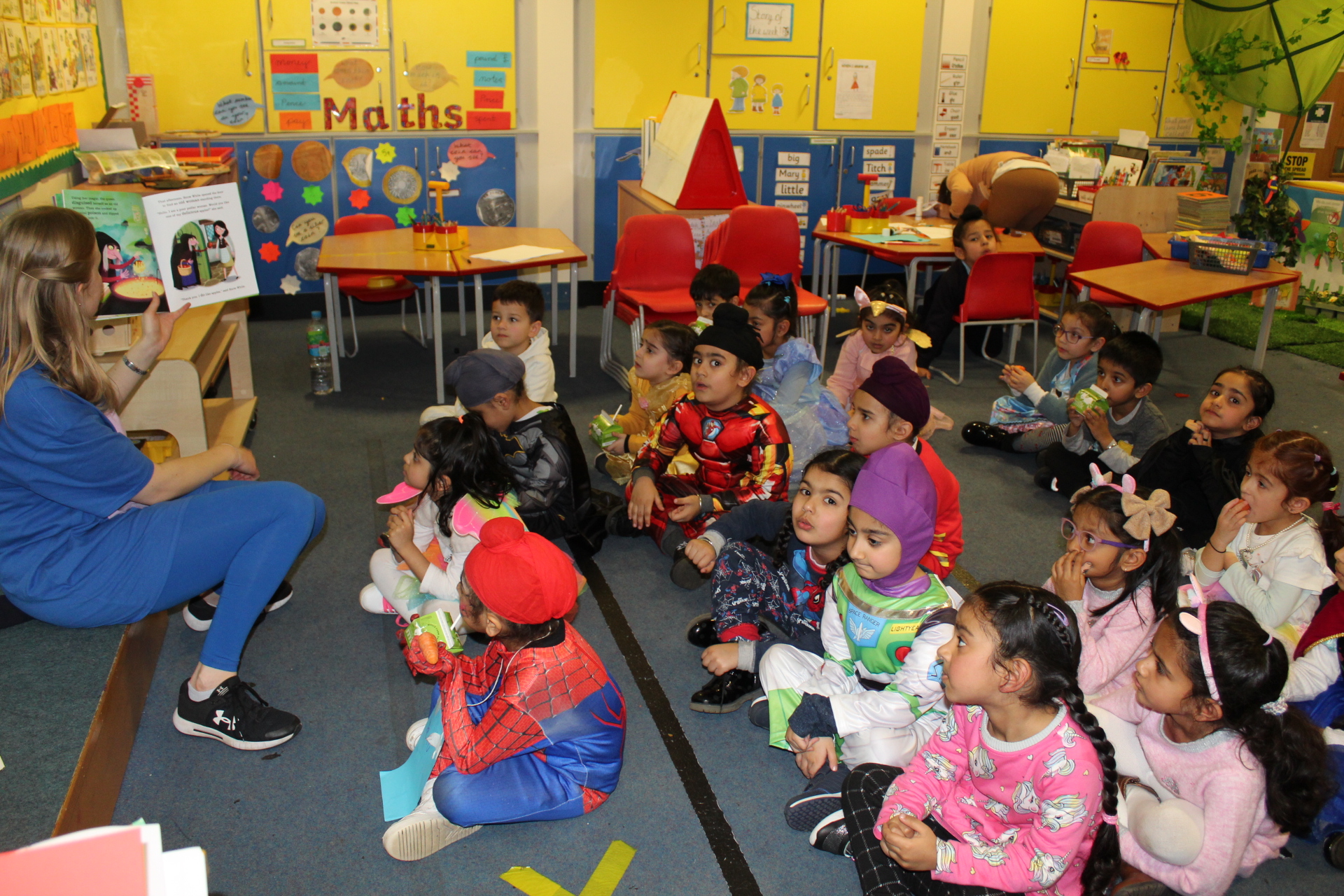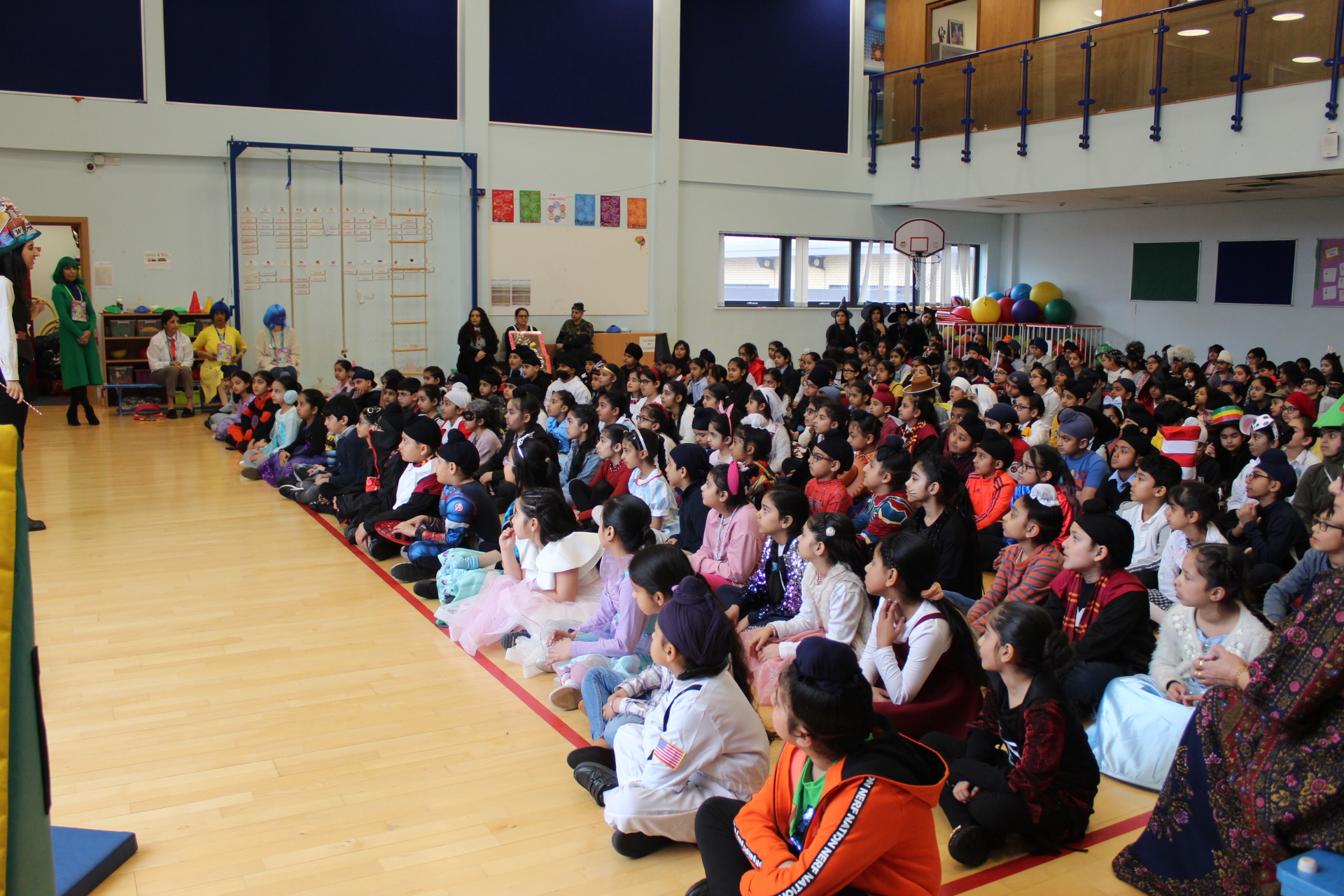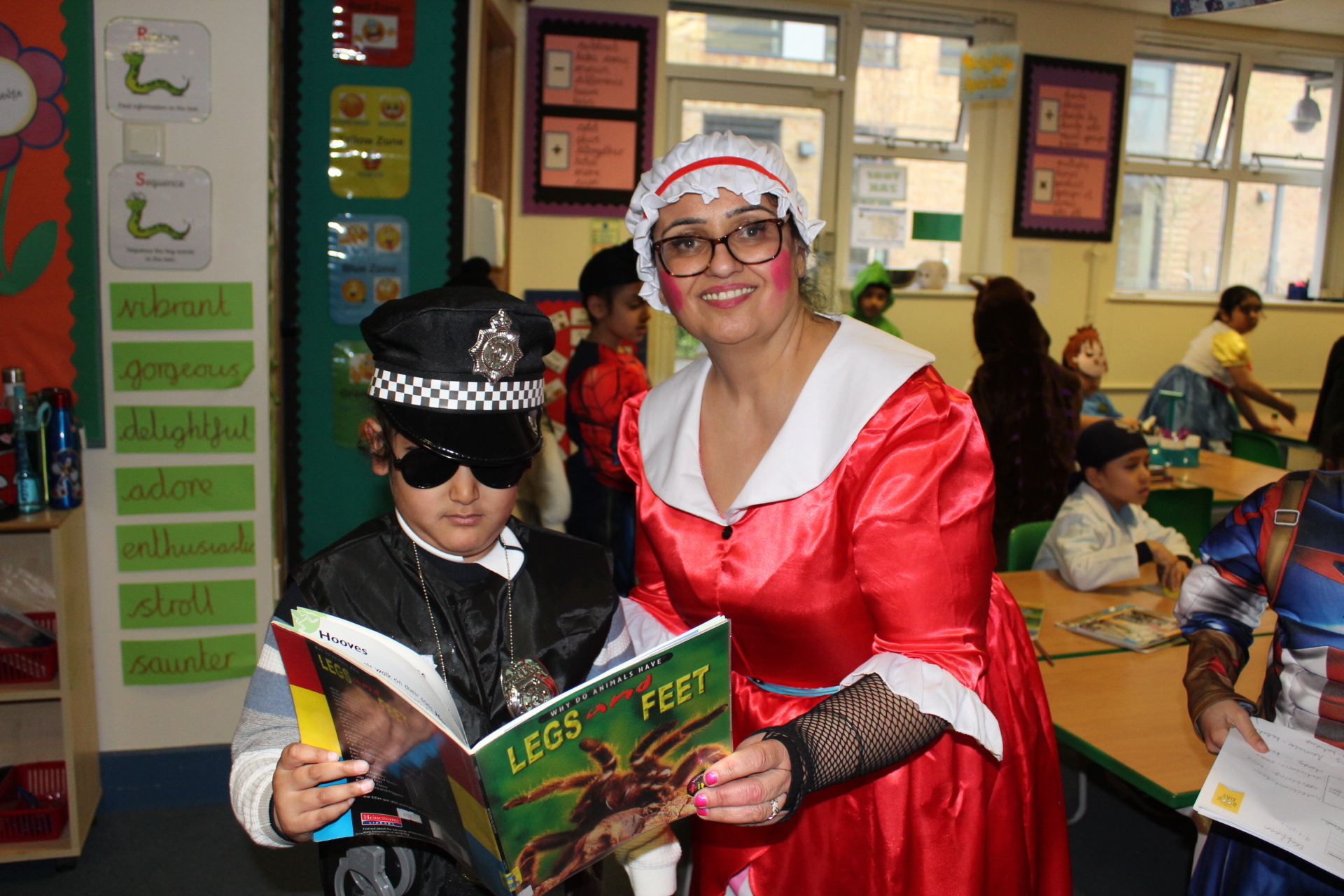Reading
How we support our pupils to acquire this learning:
Reading is a high priority in our school and whilst we follow the National Curriculum, we also ensure our reading intent and implementation is unique to our school to achieve our vision. Through reading time, Guided Reading, Literacy lessons, a well-resourced library, inviting book corners, and teachers’ choice of high quality, diverse texts, we endeavour to develop a love for reading, allowing pupils to recognise the pleasure they can gain from it. At GNSA, we are passionate about developing enthusiastic and confident readers who can understand a wide range of texts. Reading is a core skill that underpins our whole curriculum; we know that learning to read, and reading to learn, is the foundation for future success. We recognise the importance of this academic skill and we want to ensure that every child leaves us by the end of Key Stage 2 as a competent, lifelong reader.
Our Reading curriculum has been carefully planned so there is clear progression from EYFS to the end of Key Stage 2. This sequential teaching sequence allows pupils to build on their prior knowledge and develop skills in line with the National Curriculum Objectives for their year group. Alongside progressive learning, the curriculum exposes pupils to a variety of genres, text types and real life situations, consolidating previous learning while developing their decoding and comprehension skills. We provide our pupils with a structured curriculum that facilitates them to become fluent readers who are able to apply their skills across all subject areas. To achieve our subject vision, we will implement the following key strategies whilst allowing staff the autonomy to personalise their teaching according to our pupils needs.
Love for Reading:
- visit the library in their weekly library slot
- library displays linked to popular books and authors
- classrooms have a reading area with a range of fiction and non-fiction, age-appropriate texts
- have timetabled reading slots whereby teachers model reading aloud and demonstrate the importance of reading for pleasure (choosing engaging books and leaving the session on a cliffhanger to keep readers hooked)
- organise events such as reading competitions, book swaps, World Book day, poetry day to ignite a love of reading across all year groups
- subscription to Collins e-books (EYFS/KS1) and Myon (KS2) so pupils are exposed to thousands of books using online platforms
- interactive author events and virtual workshops so pupils can engage with authors, poets, illustrators
- storytimes delivered by local librarians reading popular books and encouraging ouipils to join the library
- annual Shakespeare workshops for KS2 to become aware of classic literary personalities and their great work in English literature
- annual book fair with selection of popular books/authors suitable from Early Years to Year 6
Whole school Guided Reading:
- weekly Guided Reading lessons teaching pupils the skills to decode and comprehend what they read
- targeted, effective questioning linking to the National Curriculum objectives
- a clear lesson structure introducing a new text, analysing it and practising strategies to answer a variety of question types
- teaching the ‘VIPERS acronym to practise reading strategies to support pupil comprehension thus be able to answer questions around: Vocabulary (words), Inference (reading between the lines), Predict (what could happen next), Explain (justifying opinions with evidence from the text), Retrieve (finding the information needed) and Summarise (identifying the main events)
- high- quality texts to read and teach comprehension skills
- pupils are shown how to deconstruct texts to gain a better understanding of the text including character feelings
- reading comprehension is taught through scaffolding - reading together, discussing vocabulary, teacher modelling and adult support in the classroom differentiating our strategies where necessary to meet the needs of all our pupils.
- a variety of genres are progressively taught alongside the curriculum drivers to ensure pupils are exposed to wide variety of texts linking to cross curricular topics where relevant
- a variety of strategically planned speaking and listening opportunities within the lessons to support our students, most if not all, speak English as a Second Language
- formative Assessments occur every lesson where pupils are assessed against National Curriculum objectives
- summative assessment takes place termly through PIRA (progress in Reading Assessments) where pupils’ reading comprehension is assessed and gaps in learning can be identified and subsequently planned into lessons
- all students are given prompt and purposeful verbal feedback throughout the lesson so they are ware if they are on track and know how they an improve which encourages then to take ownership of their progress
- cross-curricular reading opportunities (across all subjects) allow pupils to practise their reading skills while allowing for deeper learning to take place.
- vocabulary development is encouraged through vocabulary rich texts, word of the day and using synonyms in context
- students not achieving age-related outcomes are provided with additional support through: shorter texts, less/different question types, interventions, adult support in lessons, modelling of key skills, scaffolding and appropriately differentiated resources and tasks
How we measure our achievements:
- Children begin to understand that reading provides opportunities to: discover new knowledge, further their learning, ignite their imagination, and understand more about the world around them.
- pupils become confident readers who are able to read fluently across a variety of genres - both fiction and non-fiction
- pupils meet age related expectations for reading including in termly PIRA tests
- pupils enjoy reading opportunities in school and can talk about the books they are reading, giving reasons for their book choices
- pupils are confident reading aloud using expression and intonation
- pupils are proud of their reading achievements
- pupils can comprehend a range of different text types using strategies taught in class as well as drawing on their preferred meta cognitive strategies
- pupils can respond to and answer a variety of question types around a text
- pupils are familiar with vocabulary, inference, prediction, explanation, retrieval and summarising skills to answer comprehension questions
- pupils can justify ideas and opinions using higher level thinking and referring to the text as evidence
- presentation is valued and is of a high standard
- our children enjoy learning and using a wide range of vocabulary, excited about learning synonyms and antonyms for new vocabulary
- progress across the school is monitored by the subject leader and senior leadership team through: book looks, lesson observations, sharing best practise, pupil voice interviews, learning walks and data
- the findings of this monitoring will be used to inform next steps for the children and the implementation of reading across the school as a whole.
- pupils become independent learners who read a variety of books to further their own learning
- children read daily at home choosing books they can read independently, from a variety of genres, including fiction and non-fiction.
- children have the opportunity to enter the wide and varied magical worlds that reading opens up to them
- children are fluent, confident and able readers, who can access a range of texts for pleasure and enjoyment, as well as use their reading skills to unlock learning and all areas of the curriculum
- reading is the key to all learning and so the impact of our reading curriculum goes beyond the results a deep love of literature across a range of genres, cultures and styles is enhanced.





